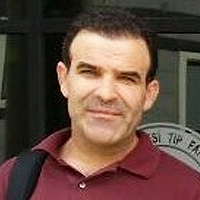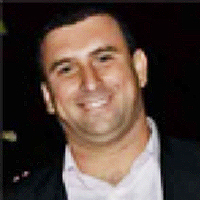Physicochemical and microbiological quality of tanker waters in Bengaluru urban for safe water supply
Published on: 11th May, 2020
OCLC Number/Unique Identifier: 8601971117
This study investigated the water quality of tanker waters that was collected from Bengaluru urban areas to assess its suitability for domestic purpose. A total of 50 samples were collected in dry (March 2019) season. All samples were analyzed for various hydrochemical parameters, such as pH, total dissolved solids (TDS), electrical conductivity (EC), turbidity, dissolved oxygen (DO), total hardness (as CaCO3), calcium (CaCO2+), chloride (CaCO−) and nitrate (NO3−). Bacteriological analyses of water samples were analyzed for total coliform count. A very high level of total hardness (186 - 434.6 mg L-1) was determined in 27 water samples tested in this study indicating the necessity of water treatment before used for domestic purpose. Of the 50 samples tested, 7 showed a most probable number (MPN) index of < 23 and 9 showed < 240 and the remaining 34 were unsatisfactory with an MPN index of > 1600 per 100 ml. In some locations, the presence of high MPN index, in particular, rings the bell before using the tanker water in houses and restaurants. Exploration of the mechanisms by which water quality deteriorates during supply chain and potential implication for regulatory policy for monitoring of tanker water while distribution is the need of the hour.
Micropollutants in wastewater irrigation systems: Impacts and perspectives
Published on: 9th July, 2019
OCLC Number/Unique Identifier: 8199206316
Climate change and the increasing global population pose a severe threat to the availability of freshwater in the world. Over consumption of water and deteriorating water quality are problems that should be addressed in order to ensure water availability for the coming decades. In this context, the increasing presence of micropollutants in water has shown to cause detrimental impact on water quality, given the negative disturbances that they can cause on human health and on the environment. Thus, it is important to study and quantify the presence of micropollutants in water bodies and also in regenerated wastewater based irrigation systems.
Impact of dyes used in the mat on groundwater in and around Pattamadai, Tirunelveli district, Tamilnadu
Published on: 14th February, 2023
The main focus of this study concentrates on evaluating the quality of groundwater in and around the zone of pattamadai where the production of the mat in this region is a landmark industry, which is using dyes in a larger volume. The primary work starts with the collection of water samples from 13 boreholes and 13 hand-dug wells in different time intervals in the month of March 2021, which is a dry season. As per standards the water quality parameters have been evaluated and observed to be within the range. All the physico-chemical parameters for the samples have been studied for boreholes and hand-dug wells as all the values are observed to be within the range and are highlighted in the results.
Drinking-water Quality Assessment in Selective Schools from the Mount Lebanon
Published on: 2nd April, 2024
The present study aims to assess and compare the quality of drinking water according to WHO Standards and then illustrate the resulting diseases. Eight samples have been taken from selective different schools in the Mount Lebanon Region. The laboratory tests of the collected samples were performed to determine various physical (e.g., temperature, pH, electrical conductivity, etc.), chemical (Ca+2, Cl-, Fe, Mg2+, NO3, Na+, SO2-4), and microbial such as E. coli, coliform, and non-coliform. Several techniques were used for the analysis including Atomic Absorption Spectrometry, Flame Photometer, and Total Organic Carbon (TOC). The resulting water quality was compared with the standard limits. Each school has different defects according to specific contamination that existed. To save local residents and according to the results of this study, regular monitoring for water quality was proposed; besides more water filtration plants should be installed to provide safe drinking for children’s health.
Comparative Analysis of Water Wells and Tap Water: Case Study from Lebanon, Baalbeck Region
Published on: 5th September, 2024
Water deficit is a fundamental factor in public health and economic growth. Water supply and population growth are directly linked to water demand. The physio-chemistry and microbiology analysis of water is utmost significance in dietary requirements. Drinking water has the main concern especially it affects food security. This study includes a number of representative sites where 24 water samples (from wells, reservoirs and tap water) were analysed. These sites are located in the western villages of Baalbeck, the main city of the Bekaa Plain in Lebanon where the analysed water is used mainly for domestic needs and for irrigation. This study investigates the physiochemical and microbiological properties. Among the selected sites, Hawsh Barada site shows a strong contamination by nitrate. At the Nabi Rashaded (tap), Beit Shema and Bednayel (borehole and tap), contamination above the norm by zinc ion was noted. From a microbiological point of view, Hawsh barada, Nabi-Rashadeh, Hawsh-bay, and Beit shema are markedly polluted and do not meet the standard for drinking water. Hence, water quality in Hawsh barada, Nabi-Rashadeh, Hawsh-bay, Beit shema and Bednayel are not suitable for drinking, and this must be informed to decision makers who can act implementing environmental controls for health protection in the studied region.
















